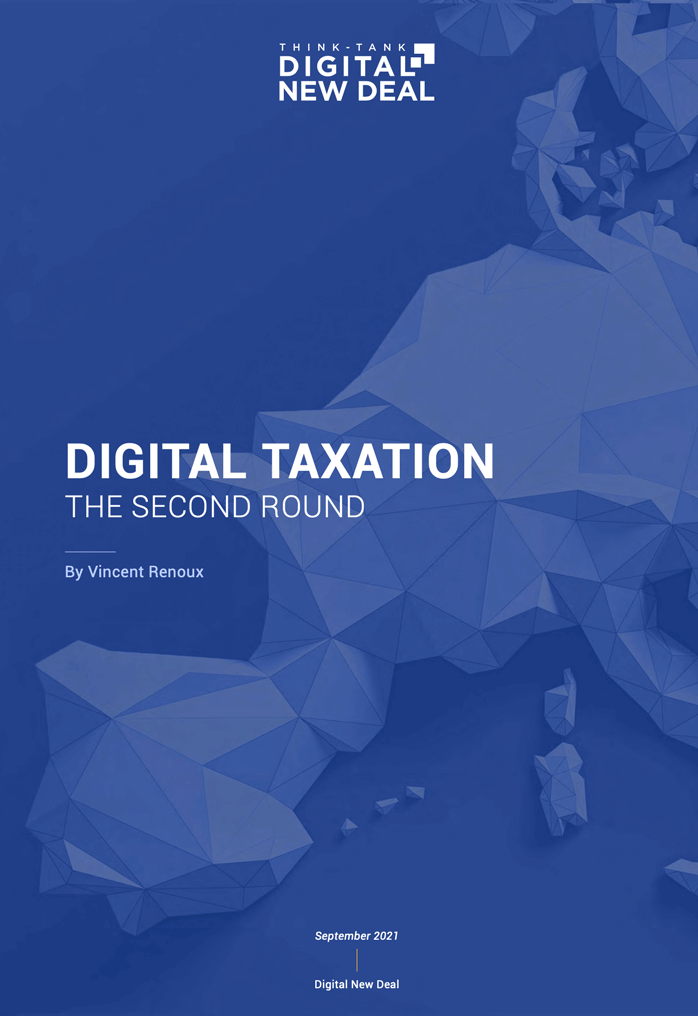This publication reconsiders the essential question of Big Tech’s taxation, an indispensable prerequisite to pave the way towards an economically fair and politically acceptable state of affairs.
In 2017 we published Digital Taxation (“Fiscalité réelle pour un monde virtuel“) with Vincent Renoux. We took part to the renewed address of these stakes, contributing to bringing about the famous “digital services tax”, in close relation with the French government.
Four years later, we asked to the same author to look into the digital taxation topic once
again, in order to build tangible proposals which take into account the new geopolitical
context.
Fiscalité Numérique – Vincent Renoux from Digital New Deal – ThinkTank on Vimeo.
While the health crisis has consolidated the Big Tech’s power, it is essential to reinstate the societal model we are defending, undermined by some foreign digital corporations ostensibly trying to free themselves from it, whereas so many French and European corporations, included digital corporations, continue to abide by. It is a major competitiveness issue, and a consubstantial principle of fairness. This study presents insights aiming at feeding the debate and reinforce France’s action which is now at the frontline of this European and worldwide struggle.
Here is Vincent Renoux’ triad of proposals:
1/ Virtual Permanent Establishment > allows France the possibility to tax
Would be recognised on the basis of criteria that remain to be defined and discussed. Note
that creating the obligation to declare a permanent establishment is not a panacea. It will
then be necessary to determine its taxable income. This is the purpose of solution 3 below.
2/ Tax Abuse > taking it on artificial funding schemes
This tax would be collected by the procedure of ex officio taxation in order to determine the
income and expenses attributable to the French operation. Coupled with the provisions on
virtual permanent establishments, the aim of this tax is to encourage the declaration of a
taxable presence in France.
3/ Profit Split > value French digital establishments as well as the users and their data.
Set up the taxable income for foreign companies in France through the transfer prices
technique from OCDE commentaries. This tax “vade mecum” would thus make it possible to
value the digital presence in France, to determine the share of profits attributable to this
digital exploitation carried out in France, as a function of the turnover that is achieved on
our territory.

